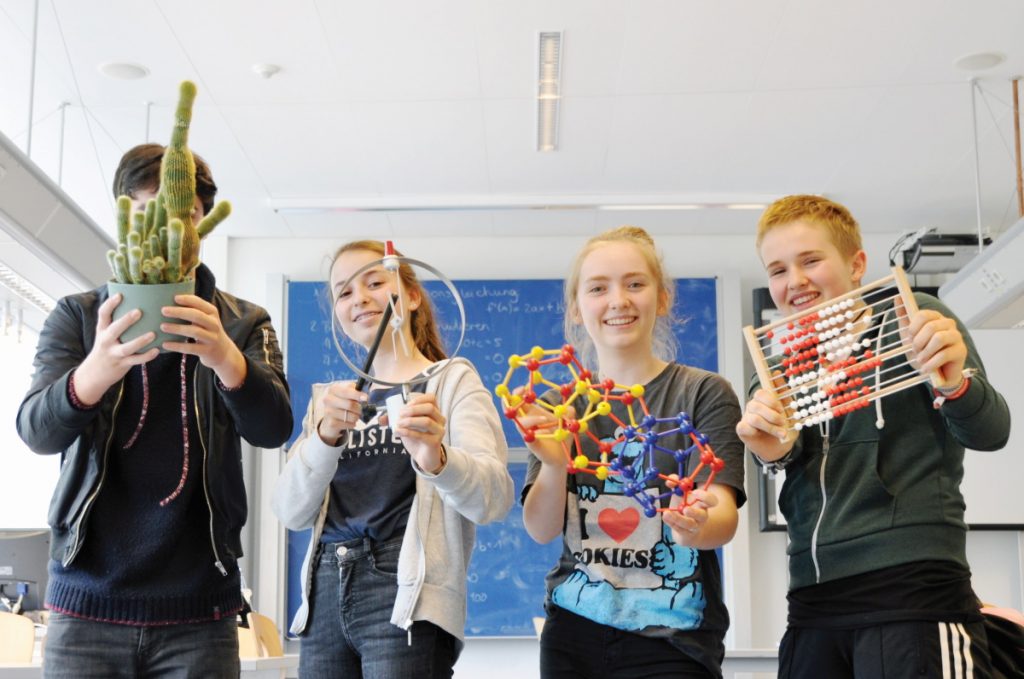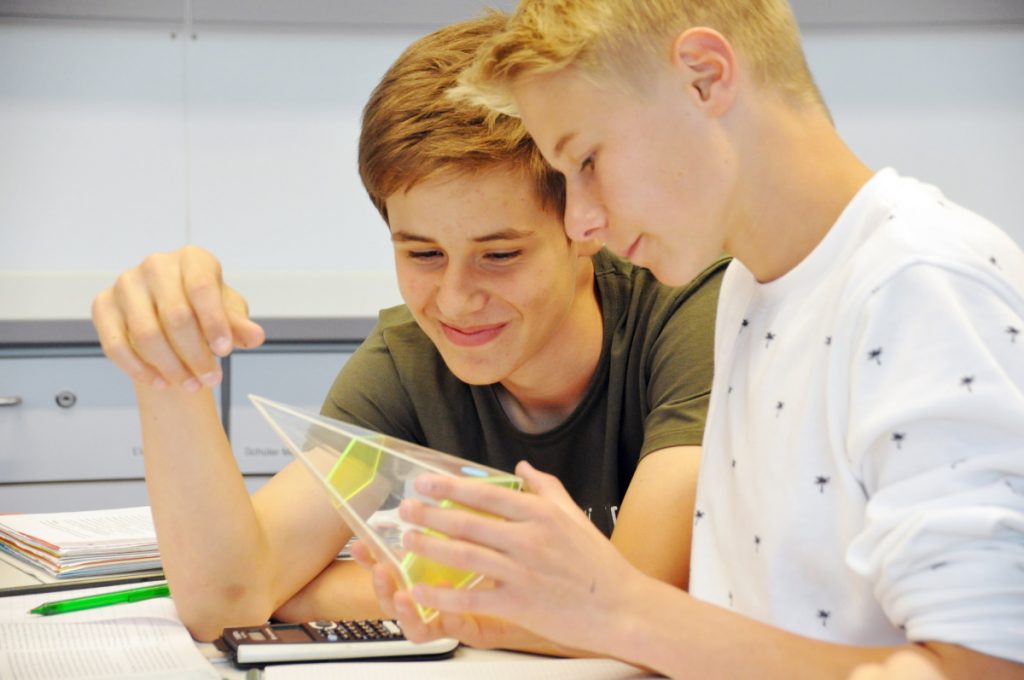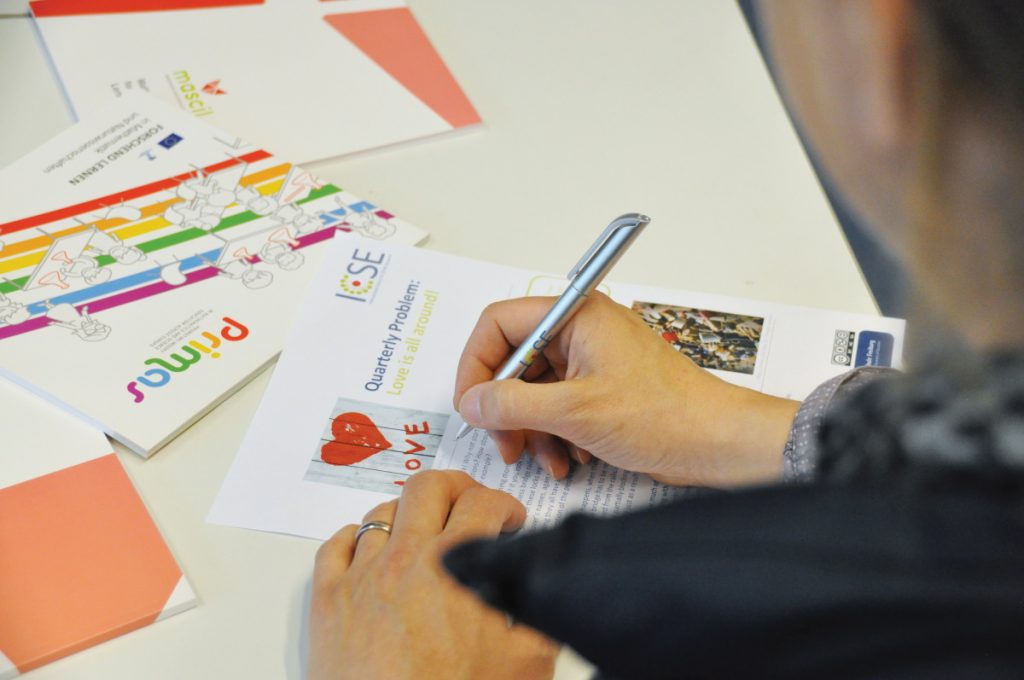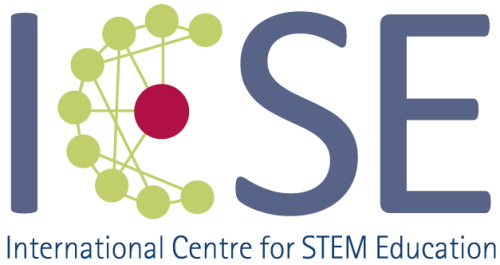Can research help improve STEM education across Europe?
The aim of ICSE (International Centre for STEM Education) is to help improve STEM education across Europe through practice-related research and its transfer into practice. Prof Dr Katja Maas, ICSE Director, explains why STEM education research is so fundamental
HOW WOULD YOU DESCRIBE THE CURRENT STATE OF STEM EDUCATION ACROSS EUROPE?
As far as I can see, currently in most European countries, STEM education does not include enough real-life applications. I think STEM education should focus more on showing students what the applications are, alongside the relevance of STEM subjects to society. Why should you learn about geometry, genetics, chemical elements and so forth if you cannot apply it to the world and use it as an active citizen? Notwithstanding, it is worth working on a problem from mathematical perspective. It provides you with problem-solving strategies and encourages creative thinking.
It is also important to show how STEM is connected with the world. The need for this approach has become particularly evident during the coronavirus crisis. People feel uncertain because they do not understand why statements from virologists keep changing over the course of time.
WHY IS RESEARCH SO FUNDAMENTAL TO IMPROVING STEM EDUCATION?
If you want to introduce a medicine into the market, nobody would question the necessity of research on whether it is curative or not. If you want to fly an aeroplane, there is hopefully research on whether or not it stays in the air as intended. Pupils are the future of our society; they need to be educated so that they have sufficient knowledge and competence to live their lives as active citizens. There needs to be rigorous research-based knowledge on whether certain teaching approaches are suitable to reach these aims.
As another example, when you educate prospective teachers or run professional development (PD) courses, research-based evidence is needed to find out whether teachers are able to implement certain teaching approaches after the course.
HOW DOES ICSE ENSURE THAT ITS RESEARCH PROJECTS ARE SUCCESSFULLY TRANSFERRED INTO THE CLASSROOM?
All our projects have the explicit intention of transferring research knowledge into the classroom. The idea is to develop classroom materials and PD courses that are based on STEM education research. Thus, the steps are: We read research on, for example, inquiry-based learning (IBL), applications in real-life, connections to the world of work (WoW), citizenship education, and so on, and based on this knowledge we develop materials for day-to-day classroom teaching and PD courses. We then run the courses and carry out new research aimed at showing the impact of the materials on day-to-day teaching or the impact of our PD courses on teachers. We also develop detailed dissemination plans for each project in order to ensure that the materials and course content become available to a broad mass of teachers and thereby find their way into classrooms all over Europe.
ICSE PUBLISHES QUARTERLY PROBLEMS. CAN YOU EXPLAIN THE AIM OF THESE PROBLEMS AND HOW TEACHERS MIGHT BE ABLE TO USE THEM?
We want to present teachers and students with current problems from the world around them that can be solved with STEM. Thereby, we help students comprehend the actual utility and applicability of STEM subjects, and connect STEM with topics that might affect their everyday lives, such as love, vacations, chocolate production, etc.
HOW WOULD YOU DESCRIBE THE CURRENT STATE OF STEM EDUCATION ACROSS EUROPE?
As far as I can see, currently in most European countries, STEM education does not include enough real-life applications. I think STEM education should focus more on showing students what the applications are, alongside the relevance of STEM subjects to society. Why should you learn about geometry, genetics, chemical elements and so forth if you cannot apply it to the world and use it as an active citizen? Notwithstanding, it is worth working on a problem from mathematical perspective. It provides you with problem-solving strategies and encourages creative thinking.
It is also important to show how STEM is connected with the world. The need for this approach has become particularly evident during the coronavirus crisis. People feel uncertain because they do not understand why statements from virologists keep changing over the course of time.
WHY IS RESEARCH SO FUNDAMENTAL TO IMPROVING STEM EDUCATION?
If you want to introduce a medicine into the market, nobody would question the necessity of research on whether it is curative or not. If you want to fly an aeroplane, there is hopefully research on whether or not it stays in the air as intended. Pupils are the future of our society; they need to be educated so that they have sufficient knowledge and competence to live their lives as active citizens. There needs to be rigorous research-based knowledge on whether certain teaching approaches are suitable to reach these aims.
As another example, when you educate prospective teachers or run professional development (PD) courses, research-based evidence is needed to find out whether teachers are able to implement certain teaching approaches after the course.
HOW DOES ICSE ENSURE THAT ITS RESEARCH PROJECTS ARE SUCCESSFULLY TRANSFERRED INTO THE CLASSROOM?
All our projects have the explicit intention of transferring research knowledge into the classroom. The idea is to develop classroom materials and PD courses that are based on STEM education research. Thus, the steps are: We read research on, for example, inquiry-based learning (IBL), applications in real-life, connections to the world of work (WoW), citizenship education, and so on, and based on this knowledge we develop materials for day-to-day classroom teaching and PD courses. We then run the courses and carry out new research aimed at showing the impact of the materials on day-to-day teaching or the impact of our PD courses on teachers. We also develop detailed dissemination plans for each project in order to ensure that the materials and course content become available to a broad mass of teachers and thereby find their way into classrooms all over Europe.
ICSE PUBLISHES QUARTERLY PROBLEMS. CAN YOU EXPLAIN THE AIM OF THESE PROBLEMS AND HOW TEACHERS MIGHT BE ABLE TO USE THEM?
We want to present teachers and students with current problems from the world around them that can be solved with STEM. Thereby, we help students comprehend the actual utility and applicability of STEM subjects, and connect STEM with topics that might affect their everyday lives, such as love, vacations, chocolate production, etc.
In order to give teachers and students continuous insight into such problems, we decided to produce them regularly and send them out to all of our subscribers. We now have three different quarterly problems: One for mathematics, one for science and one for ecological questions (the green edition). They are designed as students’ worksheets, which can be used in class; they also give hints to students. Teachers who want to use them only need to reflect briefly on how to introduce the problem, then decide on the methods they want to use (i.e. having students work in groups on the problem, and so on) and then get started. They are easy to use and fun or/and relevant to nature!
ARE THERE ANY OTHER RESOURCES TEACHERS CAN ACCESS THROUGH ICSE?
Since the beginning of April 2020, ICSE publishes weekly “Mathematics and Coronavirus” tasks, which are, again, worksheets for direct use in class. They illuminate up-to-date coronavirus issues, and students work through them to gain insight into how the crisis can be mastered with the help of mathematics. Until recently, these tasks were only available in German, but they are now available in English on our website.
Moreover, ICSE develops materials for teaching through all its research projects (namely IBL, connections to real life, WoW, interdisciplinary STEM teaching, citizenship education and diversity). We produce classroom materials, materials for teacher education and for professional development. You can find these materials here:
https://www.fi.uu.nl/publicaties/subsets/masdiv_en/
https://www.fi.uu.nl/publicaties/subsets/icse_en/
FINALLY, WHAT IS YOUR HOPE FOR STEM EDUCATION IN THE NEAR AND FAR FUTURE?
My vision for STEM education is that it inspires young people into STEM subjects, supports them in doing IBL (instead of following strict algorithms), and shows them how to apply STEM subjects and how knowledge is gained in STEM subjects. Finally, I want STEM education to enable young people to act according to their values and become responsible citizens. I hope that, increasingly, curricula and assessment procedures across the world include these aspects, and that increasing numbers of teachers teach in this way.
 ABOUT KATJA
ABOUT KATJA
YOU ARE A PROFESSOR AT THE INSTITUT FÜR MATHEMATISCHE BILDUNG (IMBF). IS YOUR BACKGROUND IN MATHS?
I studied mathematics, biology and informatics to become a secondary teacher, which I did for 10 years. During this time, I started writing papers – and my thesis – about mathematics education. I was awarded professorship in 2004.
WHO OR WHAT INSPIRED YOU TO STUDY AND FOLLOW A CAREER IN MATHS?
I have loved mathematics since I was a child. I had a fantastic mathematics teacher in primary school who inspired me. I was fascinated by numbers, solving problems and getting insight into a new world of mathematics.
WHY ARE YOU PASSIONATE ABOUT STEM EDUCATION?
As a passionate teacher, I want students to appreciate the relevance of STEM for our societies, to understand fundamental scientific principles, and be empowered to live as responsible citizens. I want to encourage students to take up careers in the STEM sector. Not only is there an urgent need for employees, but STEM is important to our societies and way of life.
ABOUT ICSE
ICSE is located at the University of Education in Freiburg, Germany, and focuses on practice-related research and its transfer into practice. It sustainably links stakeholders from research, practice, policy and industry, nationally as well as internationally, through the ICSE consortium.
The ultimate aim of ICSE is to help improve STEM education across Europe. That is, to give students insights into authentic features of STEM subjects and their connection to real-life contexts, to raise achievement levels in STEM subjects and to make science literacy accessible to all students, no matter their gender, their cultural or socioeconomic background. Thereby, ICSE intends to promote the interest of young people in STEM careers.
ICSE RESEARCH
ICSE and its partners focus on six areas: inquiry-based learning (IBL), connections to the world of work (WoW), real-life contexts, interdisciplinary STEM teaching, diversity in classrooms, and citizenship education. Here are two examples:
GEM – EMPOWER GIRLS TO EMBRACE THEIR DIGITAL AND ENTREPRENEURIAL POTENTIAL
GEM’s mission is to close the gender gap in Europe’s labour market in the natural sciences and advance digitalisation. Aimed at girls, a number of summer camps around Europe will introduce girls to the complex but exciting facets of STEM and ICT in order to inspire them to study these subjects and eventually choose a career in the natural sciences.
Another aspect of this project addresses the girls’ environment, namely (1) families/friends/close human environment, (2) business/industry representatives, (3) policy makers and media, and (4) educational stakeholders such as teachers, HEI, informal learning providers. The GEM network members, representatives of the named further target groups, will agree on purposeful measures in order to achieve lasting effects in supporting girls to choose STEM/ICT carriers.
https://icse.eu/international-projects/gem/
MASCIL – INQUIRY-BASED LEARNING AND CONNECTIONS TO THE WORLD OF WORK
In this project, 18 partners from 13 countries collaborated to develop classroom and professional development (PD) materials that connect IBL in school with the WoW. The aim is to make science more meaningful for young European students and motivate their interest in careers in related fields. With mascil, ICSE developed an international PD course to encourage and enable teachers to implement an innovative teaching approach to connecting IBL to the WoW in their day-to-day teaching. Their research came up with some interesting results:
• At the beginning of the PD course, the teachers who felt more supported by the school context (curriculum, assessment, curriculum materials) had more connections to the WoW than others. For example, if they felt the curriculum related to IBL and the WoW, or that they had access to relevant classroom resources, they were more likely to include IBL and WoW in their teaching.
• Teachers’ views on the WoW, classroom management, time and, in particular, policy support (e.g. the curriculum, assessments, political goals) influenced teaching practice.
• Teachers who felt they were supported by policy felt less pressured by time issues. This emphasises the important role policy has on implementing innovations in day-to-day teaching.
• The ICSE study found a correlation between classroom management and time. Teachers who had difficulties managing their classes seemingly needed more time for classroom management and therefore felt pressured by time issues. This indicates that PD courses, aimed at implementing connections to the WoW or IBL, should also include aspects of classroom management.
• After the PD course, teaching practices changed with teachers using more connections to the WoW.
• There were also significant changes in teachers’ attitudes to classroom management, policy support and the WoW after the PD course. Teachers felt they had fewer problems with classroom management and that they were more supported by policy. The PD course pointed to connections between the curriculum and policy documents, helping teachers to change their perspectives on policy support.





